“Nobody has the intention of building a wall.” – GDR head of state Walter Ulbricht, East Berlin, June 15th 1961
For me, for everyone I suppose, some places can have a real impact when we visit them. They leave an impression. The Berlin Wall was one such place. History hangs in the air, so thick you can almost touch it, almost feel it, almost smell it. Other places that I have visited that have had similar impact for me are Auschwitz Concentration Camp in Poland and Clairière de l’Armistice at Compiegne in Northern France.
Checkpoint Charlie was an obvious place to visit and every other visitor to Berlin agreed with us because this is probably the most visited attraction in the city. It is the most famous of the fourteen previously controlled crossing points between East and West Berlin, between the Allied and the Soviet Sectors.
Today I walked along a section of the wall, I ran my fingers across its harsh, hostile, concrete surface, I read the conflicting messages of anger and hope that it been scrawled across it, I was stunned by just how grotesquely ugly it was, I remembered all of the things that frightened me about the wall when I was a young boy.
Today as tourists we have our picture taken against a souvenir section of the wall, we smiled for the camera, fifty years ago people died trying to get across it and escape to the west, they didn’t smile. I thought about that as this picture taken.
The Berlin Wall divided the city from 1961 to 1989. In the German Democratic Republic it was an offence to leave the country without permission. The border guards were duty bound at all time “to arrest or eliminate border violators”. The border regime was based on barriers and border guards at regular intervals and above all on the permitted use of firearms. The border guards who successfully stopped escapes were rewarded with a decoration and a bonus.
There is no checkpoint there anymore of course just a reconstruction and men in menacing uniforms providing a photo opportunity. It amused me that the Berlin Wall was constructed to keep out the west but at the site today is one of the most aggressive symbols of western capitalism – a McDonalds restaurant. Walter Ulbricht is probably still spinning in his grave!
I was seven years old when the German Democratic Republic began building the wall and it was barely out of the news headlines throughout the 1960s; subjugated people trying to escape, the unlucky ones being gunned down in cold blood, the menacing stare of the border guards, the impenetrable and secretive Soviet Empire. Berlin was where East and West stood toe to toe, where the West stood firm against further Soviet expansion in Europe and where the East tried to annex the whole of Berlin by starving out the West.
Donald Trump would have been proud of a wall like this.
If World War Two and the Nazis fashioned our vision of Germany and the Germans then the Wall was something that shaped our opinions of the post war East and the Soviet domination and I spent my childhood with a morbid fear of the USSR and in an environment preparing for imminent nuclear conflict and the end of the world. This was the golden age of espionage and spies, John John le Carré and Ian Fleming.
For me this was the best moment of all in Berlin, around the site are informative displays and photographs which made me stop and think. I was born within ten years of the end of the most appalling and destructive war in Europe, in the World, and grew up seeing the Germans as natural foes. I soaked up my Dad’s stories of the War and read the Victor comic. When England won the Football World Cup in 1966 it was a champagne moment to beat West Germany and even in the 1970s I still carried with me my irrational dislike for sun-bed thieving Germans when on holiday in Europe.
I was forty-five when the wall came down, Germany was reunited and Europe gave a collective sigh of relief.
So, for the first fifty years or so of my life it would simply never have crossed my radar to visit Germany until in 2007 when cheap Ryanair flights to Friedrichshafen and Lake Constance persuaded me that I should go there and give it a chance and it turned out to be a personal pivotal moment when I discovered Germany to be relaxed, refined and cultured and I was glad of that and to have my national prejudices so quickly readjusted.
Close by to Checkpoint Charlie is one of the last remaining sections of the wall that remains intact and another series of information boards chronicling the years through the time of the Weimer Republic, the rise of Nazism, the War and the Wall. I had imagined that this period of history might be somewhat suppressed in Berlin, it is after all nothing to be proud of. But this is not so. It makes no excuses or apologies but sets out the history in a matter-of-fact and sensitive way. I was impressed.

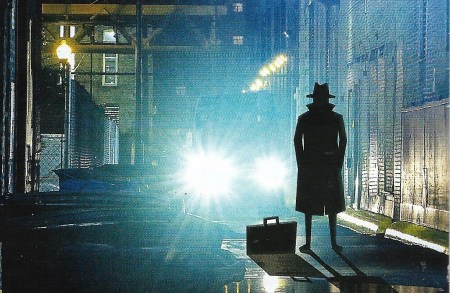
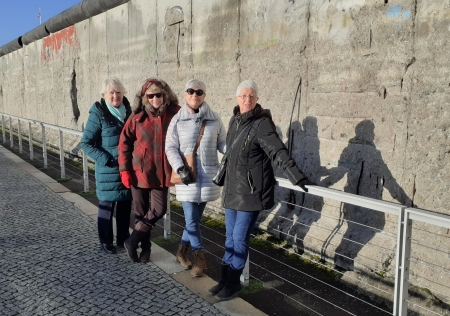
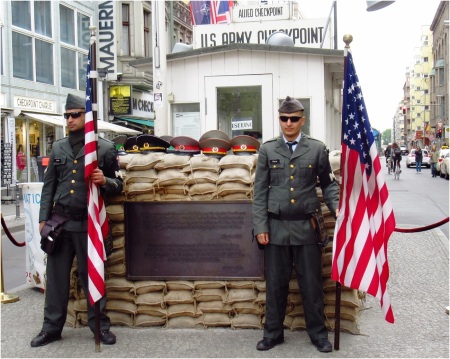
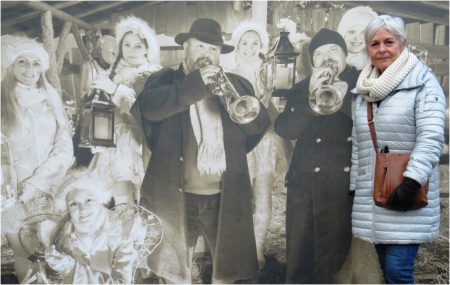
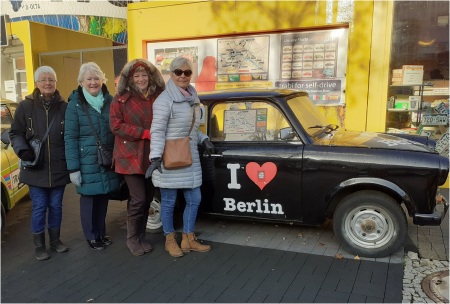
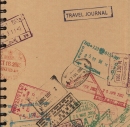
I remember visiting Berlin for the first time when the wall was still in situ.
LikeLike
I prefer it now that it is down!
LikeLiked by 1 person
Ditto
LikeLike
That’s what impressed me about Berlin too, the history is everywhere and out in the open, there is no attempt to hide it. I grew up with the same Cold War fears that you did, though having no interest in football or war comics I probably had a more favourable impression of Germany at an early age. I learned the language from age 12, did an exchange with a German schoolgirl when we were 14/15, and have been fond of the country ever since.
LikeLike
I am happy to give it my recommendation!
LikeLiked by 1 person
Ugly still
LikeLike
But thankfully not a lot of it!
LikeLiked by 1 person
Yes.
LikeLike
Great post Andrew.
I have been to Berlin in 1990. I didn’t like the city. While I adore Germany, I still don’t want to revisit Berlin. I think Germany has so many cities which are much more interesting.
LikeLike
I would go back to Berlin but also to other German cities. Which do you recommend?
And Happy New Year!
LikeLiked by 1 person
To put my two penny worth in, I would recommend Dresden, Andrew
LikeLike
Twinned with Coventry for good reason.
LikeLiked by 1 person
Absolutely
LikeLike
Unfortunately, my list of visited German cities is not wide, because Irina prefers Spain (like you), France, and Italy. But nevertheless I managed to visit some of them.
I recommend Dresden (2-3 days) for its reconstracted center and the Dresden Gallery, and Fussen for the castles of Ludwig II.
Recently I’ve read a post about Erfurt https://bbqboy.net/why-erfurt-might-be-germanys-most-underrated-tourist-destination/
It seems me an interesting city for slow travellers.
Happy New Year, Andrew and Kim!
LikeLike
Thanks Victor and a happy New Year to you both!
LikeLiked by 1 person
I visited less than 4 years after the fall of the wall, and everything was still commie grey-brown…. I am with you on history being palpable in some places…Berlin, Spinalonga off the Cretan coast, Colditz and a few other places
LikeLike
History is interesting, the future is important…
LikeLiked by 1 person
Well, I consider history to be important, we don’t pay enough attention to its messages….
LikeLike
So True Sue!
LikeLiked by 1 person
Yep
LikeLike
It is reading books about the effect of the wall on people – not just those wishing to escape but also those who had it on their door step
LikeLike
I agree and that is why the World should not build walls!
LikeLiked by 1 person
It’s so strange for me to see the US Army Checkpoint sign and flags – even more odd than the McDonald’s on site. Of course I grew up learning about the wall, and the famous Checkpoint Charlie. Our government and history teacher in high school was German! But apparently it was never enforced with me that it was something Americans were involved in. I always thought of it as a painful separation of some Berliners from other Berliners – you know, things happening to people far away. I hate being reminded of my own ignorance. But I thank you for it.
LikeLike
I remember being surprised to learn that the biggest ethnic group in USA is German which made it difficult for US to enter the two world wars.
LikeLiked by 1 person
I didn’t know Germans were the biggest group, but it doesn’t surprise me. As a result of the wars, servicemen met German women and even more came to America!
LikeLike
In England we always think of USA as English but it so really isn’t!
LikeLiked by 1 person
So true!
LikeLike
An excellent post, really insightful. I am off to Berlin at the end of the month and without a doubt the wall is on the list.
LikeLike
The Wall for certain but so many other places to see as well!
LikeLike
Thank you for the very well written commentary.
LikeLike
Thank you for stopping by.
LikeLike
The wall is a great symbol for something, not sure what. I never got to see it, nor actually, do I know Berlin. I’ve only spent a couple of days there so can’t give an opinion but I like what you have to say about the situation there, then and now.
LikeLike
This was my second visit and I am certain to go again!
LikeLike
I found it a deeply moving experience to visit what remains of the old wall and stand in the former “no go”zones near the Brandenburg Gate where so many people were shot trying to flee to the west. I was impressed with the way the history is acknowledged, not shied away from. Now I have German friends who grew up in the time of the divided Germany. I’ve studied German history not only when I was at uni (through the western filter) but also in my weekly German class. One of my current teachers was born on the east side of the Berlin Wall and grew up near Potsdamer Platz (she was 11 when the wall came down) – it’s fascinating to exchange perspectives!
LikeLike
Having grown up with the wall and the cold war era I found it an important place to visit in respect of European history.
It perplexes me that some people remain negative about Germany and the German people.
LikeLiked by 1 person
I quite agree – I find these negative attitudes hard to understand and they are hardly constructive. I have made some good German friends through my weekly German classes here in Perth and it is always so interesting to exchange views and perspectives and learn more about their country and customs. Have always enjoyed visiting Germany – first went as a teenager on a music tour (well West Germany, didn’t go to the east back then)!
LikeLike
I have been to Germany several times now and will happily go again and again. Thanks for your positive feedback.
LikeLiked by 1 person
Very much enjoyed your articles and perspective 🙂
LikeLike
Thank you and I really appreciate your comments.
LikeLiked by 1 person